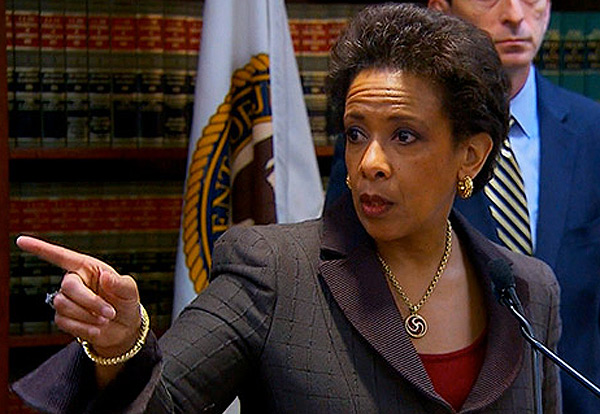
Nov 1, 2017 | Blog, News
POSTED IN BUSINESS BASICS, CALIFORNIA, LICENSING
With temporary licensing on the horizon, California’s cannabis industry is obviously on the cusp of really big things. With this green rush, our California cannabis business attorneys have been brought on to work on all kinds of M&A deals and a bevy of MAUCRSA and local law regulatory compliance issues. These projects have exposed us to many who pitch various and sundry goods and services, claiming to offer “new paradigms” and “value adds,” but actually offering little to nothing.
In this post, I set out the five most common predatory practices we’re seeing in the Golden State cannabis industry so you can spot them when they’re coming at you and avoid them.
- Brokers. Whether it’s for M&A, financing, or finding real estate, many brokers are all too willing to sell cannabis companies down the river when it comes to compliance and just plain common sense. Far too many brokers neither know nor care about local or state law and they work only at cramming a deal down the parties’ throats to ensure they get their coveted commissions. Far too often we are getting brought into deals that involve unenforceable contracts or situations that will get one or both parties in trouble for failing to comply with local or state licensing, permitting, or operational laws or regulations.
- California cannabis businesses need to be careful in choosing their cannabis regulatory or business counsel. For twenty years there’s been no government oversight over medical cannabis operators and this has allowed some attorneys to unduly profit at the expense of their clients and their own ethical duties. And just because regulation is coming does not mean that some of these attorneys will stop their reckless, unethical, or incompetent ways. I’ve written before about how to avoid “OG legal advice,” but it goes further than that. If your cannabis attorney is willing to take a financial interest in your business but is not providing you with the requisite conflict waiver and opportunity for you to consult with outside legal counsel, that should be a huge red flag. If you know more about state and local regulations than your cannabis lawyer, that’s another red flag. If your cannabis attorney is trying to “lock” you into a long-term fee agreement that you can’t cancel at any time, that’s a massive red flag (yes, I have seen at least one self-proclaimed cannabis attorney with this sort of fee agreement). If your cannabis lawyer is encouraging you not to be transparent or not to get things in writing or is steering you away from basic business and corporate duties to try to hide things and/or assets, this is yet another red flag. These predatory attorneys will eventually be knocked out of California’s cannabis industry one or the other, but until then it’s buyer beware.
- Consultants. Out of all groups on this list, this one is generally the worst. Not only is it increasingly difficult to determine the value most cannabis consultants provide, there are way too many cannabis consultants running rackets because they themselves are blocked from pursuing licensure with the state or a given city or county. We also have seen more than our share of consultants trolling for cash by playing off the naiveté of would-be cannabis licensees. I recently reviewed a proposed agreement with a consultant who wanted seven figures per year for getting a company “through the political process” to receive a cannabis license, yet didn’t include anyenumerated services nor any end date. Seeing as how California’s Bureau of Cannabis Control has made clear that state licensing procedures will not be a difficult undertaking, the idea of politicking for licenses makes no sense and paying for such politicking makes even less sense. Don’t be fooled.
- Accountants. There’s nothing like talking to a would-be client who has no clue what 280E is yet is working with an accountant/CPA who claims to know cannabis taxation issues and charges premium rates for that “specialized advice.” You need to make sure your accountant/CPA truly knows how to navigate 280E, but above all you want your accountant to be a competent tax professional. All too often we run into accountants who claim to be experts for cannabis businesses that do shoddy jobs on standard accounting or are impossible to reach when their clients need them. In other words, choose your accountant/CPA wisely.
- Cannabis conferences and trade groups. Every time we turn around, there’s a new cannabis conference or trade group in California (or elsewhere). Folks have figured out that they can make serious money off the “Green Rush” by throwing events in major cities without much knowledge about anything cannabis-related, or that they can better market themselves and their personal agendas through setting up trade organizations. Few of these conferences have any educational value and most choose their speakers based on who pays for “membership” or “sponsorship.” Having paid to play, the speakers use these conferences mostly just to shamelessly pitch themselves or their products. We have heard of many expensive yet wildly disorganized conferences with speakers who were super stoned and conveyed nothing of value or importance. On the trade group front, watch where you put your money since many of these organizations are neither unified or even organized when it comes to any kind of meaningful mission for change. Be especially wary of self-appointed and deceptively misleading “task forces” that are not actually compiled and appointed by a given city or county, but rather set up to showcase the goods or services of the person or people who formed them. In other words, do your due diligence.

Sep 29, 2017 | Blog, Medical Marijuana, News
States that have legalized medical marijuana could soon get an unwanted visit from the DEA. Yesterday, Congress stunned the cannabis industry by rejecting the only legal protection preventing Attorney General Jeff “good people don’t smoke marijuana” Sessions from cracking down on those 30 states for violating federal cannabis prohibition.
Back in 2014, lawmakers passed an amendment to the federal budget to protect state-legalized medical marijuana industries and the patients they serve. The amendment prevented the DEA from spending a single penny on enforcing cannabis prohibition in those states. It didn’t overturn federal cannabis prohibition or legalize medical marijuana, but it did tie the Department of Justice’s hands by freezing their finances.
At the time, medical marijuana was legal in 21 states, a number that has grown to 30 since then. But they could all be shuttered soon because that amendment — which has to be renewed with every budget — was rejected yesterday by the House Rules Committee. That means the House can’t include the rider in their final version of the federal budget.
If the budget passes without that rider, budtenders, dispensary owners, doctors recommending cannabis and even medical marijuana patients could face prosecution for their involvement in the industry. And not just for what they’re doing right now. They could be charged with offences dating back to when they got involved in the state’s cannabis industry.
And Attorney General Sessions might do just that since he’s been itching to crackdown on those states. Since taking office, Sessions has ramped up anti-marijuana rhetoric in America. And last May, he asked Congress to drop the amendment so that he could unleash the DEA on medical marijuana states if he saw fit. His request was denied in July by the Senate Appropriations Committee, but it seems like his message resonated in the House.
The fight for the marijuana amendment isn’t over yet though. The budget has yet to reach the Senate, where the rider could be re-inserted with support from Senators Cory Booker (D – NJ), Mike Lee (R – UT), Lisa Murkowski (R – AK), Rand Paul (R – KY), Bernie Sanders (D – VT) and others.
But even if it does get reinserted and passed, the amendment only buys patients, doctors and businesses a small window of relief before they have to start looking over their shoulders for DEA helicopters again. The reality is that the industry won’t be safe until Congress listens to the 94 percent of Americans who support medical marijuana and changes the country’s criminally outdated cannabis laws.
By James McClure | Sep 7, 2017 | Politics
https://www.civilized.life/articles/medical-marijuana-states-stripped-dea-protection/
Aug 5, 2017 | Blog, News
Detroit — The former head of the St. Clair Housing Commission embezzled more than $336,000 in low-income housing funds and spent the cash on booze, beauty products, bedroom furniture and homes for her family, federal prosecutors said Monday.
Former Executive Director Lorena Loren, 55, was charged in federal court with conspiracy to commit federal program fraud during an eight-year scheme that benefited and involved relatives, including her husband and son, according to federal court records.
Since 2008, Loren fraudulently used the housing commission’s credit cards to make $166,000 worth of purchases at Amazon, Wal-Mart and Sam’s Club, falsified lease agreements for low-income housing and used the money to pay for her own relatives’ homes, the government alleged.
“Holy crap,” St. Clair Mayor Bill Cedar Jr. told The Detroit News. “I guess you never know what’s going on with people.”
Loren was charged in a criminal information, which means a guilty plea is expected. She could not be reached immediately for comment Monday.
If convicted, Loren could face at least five years in federal prison.
Loren was charged one year after she retired abruptly, the mayor said. She moved to southeast Georgia and bought a $325,000 custom-built house in October, according to public records.
The home is far from low-income housing. The five-bedroom, 2,858-square-foot home features a salt-water pool, 24-foot ceilings, walk-in closets, a game room and detached man cave.
Loren was appointed executive director in 2003 and started stealing from the poor five years later, prosecutors alleged.
She fraudulently obtained housing-assistance payments for properties in which she had a proprietary interest with family members or for the benefit of family members, according to court records.
She falsified lease agreements and money intended to help low-income residents afford apartments was used to rent a home for her son, Ryan Loren, prosecutors alleged.
Lorena Loren also told relatives to establish bank accounts so federal subsidy payments could be deposited and spent for their personal use, including to rent a home in Florida, according to court records.
She lied while claiming her son-in-law was the landlord of a rental property for low-income residents, prosecutors alleged. The property turned out to be Lorena Loren’s home in Port Austin, Michigan, according to court records.
Her son-in-law, Jaime Johnson, deposited the money into a bank account he controlled with Lorena Loren’s husband, Brian, the government alleged.
The $166,000 worth of credit card purchases included adult and infant clothing, furniture, appliances, mattresses, food, beauty supplies, medications and other household items, according to court records.
The money was supposed to maintain Palmer Park Manor, the commission’s low-income public housing facility, prosecutors alleged.
rsnell@detroitnews.com
(313) 222-2486
Twitter: @robertsnellnews

Aug 4, 2017 | Blog, Michigan Medical Marijuana Act, News
Detroit — It’s been a year since Detroit put laws in place to regulate medical marijuana shops and as of today, only two have been approved to operate.
The strict set of zoning and licensing requirements adopted in 2015 by the City Council went into effect last March. That’s when all shops — existing and new — seeking to operate lawfully were required to apply online, submit plans, meet rules and obtain licensing, or face closure.
The city has received more than 260 applications for Medical Marijuana Caregiver Centers since that time. But new figures released by the city this week reveal only two prospective centers cleared the required hurdles.
Green Cross on West Eight Mile opened in mid-February as Detroit’s first licensed center. Its operators were the first to apply under the new law and completed the “vigorous” process Feb. 3, said manager Simon Berro.
“We went to the city. We listened to what they said. We followed their rules,” said Berro of the center, operated by the Detroit Caregivers Center Association. “We took all precautions, and it was a vigorous process, but nonetheless, it worked out at the end.”
The Green Genie on McNichols on the city’s west side also has its license. The building and its signage indicate the facility is open, but no staff was there Thursday afternoon.
Meanwhile, 136 shops have been closed down, padlocked and sealed with bright orange stickers by the city’s Building Safety Engineering & Environmental Department. And 115 others remain in various stages of the application process, according to the building department, which has enforcement authority under the code.
“There’s a lot of growing pains that exist,” said Jamaine Dickens, a spokesman for Top Dollar Holdings, which operates a caregiver center, 420 Dank on Gratiot. “It’s been a learning experience for all involved from the city and most certainly from the industry.”
The center, Dickens said, had been in operation prior to the ordinances and has done everything “by the letter of the law.” Top Dollar Holdings is one of only a few operators so far granted a variance by the city’s zoning board after it was deemed too close to a church and liquor store. Its center is now working to obtain its business license, Dickens said.
The rules, aimed at bringing order to what had been an unregulated practice, have cleared the way for Detroit to shut down so-called pot shops failing to seek compliance under the ordinance or dispensing medical marijuana in zones prohibited under federal, state and city statutes.
The federal Drug Free School Zone Act prevents marijuana from being delivered, sold or manufactured within 1,000 feet of a school. State law also factors libraries into the rule. The city’s zoning regulations cover educational institutions and goes beyond that, prohibiting shops from operating near child care centers, arcades and outdoor recreation facilities.
There were 283 dispensaries throughout the city when Detroit began accepting applications under the new laws on March 1, 2016.
Detroit Corporation Counsel Melvin Butch Hollowell said each was sent a letter, warning they were “operating at their own risk” until fully licensed. The shops were also provided a 30-day window to submit applications before enforcement officially began.
Hollowell and the zoning code note shops in operation prior to the laws without licenses are able to continue serving patients so long as they have put in “good faith” applications. The operators who haven’t top a priority list for closure, Hollowell said.
Some medical marijuana advocates contend the city’s zoning laws are unfairly restrictive and applications are being processed too slowly, and they fear patients will suffer.
Robin Schneider, executive director of the National Patient Rights Association, said she’s disappointed with the lack of progress a year in.
“(Detroit) has the most exclusionary zoning practices of anything I’ve ever seen in the state,” said Schneider, who is concerned some applicants have been improperly turned down because they are located near long-closed former schools or child care buildings. “I think the fact that patients still do not have access to licensed facilities is a disservice to patients.”
The zoning legislation will permit about 50 shops overall. Still, Hollowell doesn’t think it will lead to hardships.
“There will be an appropriate number of locations that will be made available for people to sell the medicine,” he said. “We just want to make sure that as they are opened, they are opening in an orderly fashion and meeting needs of patients required for treatment.”
Hollowell added the small number of shops to complete the approvals so far shows “diligence” in the stringent requests for zoning, site and security planning, tax and health code clearances and licensing.
“It’s a new field,” he said. “It’s being processed well.”
Under the code, centers must operate in heavily commercial or industrial areas and are barred from locating in neighborhoods.
That’s welcomed by by Cortez York, who lives off Eight Mile on the city’s east side where centers along the main roadway have been plentiful. The 24-year-old said the marijuana centers “bring a lot of activity.”
Some of it has subsided since the city’s new laws have gone into place, he said.
“Some of them are taking the signs away. I see less cars pulling up all day and pulling out,” he added. “The neighborhood looks more peaceful.”
Hollowell said a mix of about 150 newer and older shops operating in Detroit are still facing closure because they haven’t made bids to legally operate. The city’s Law Department on Thursday said it estimates another 70-80 shops with applications pending are also operating.
About 80 others have been shuttered by neighborhood police officer and building inspector enforcement teams, and 55 closed after Detroit’s legal department filed nuisance abatement lawsuits in Wayne County Circuit Court.
Under city ordinance, centers must submit specific documentation and undergo a site plan review, public hearing over land use and secure a certificate of occupancy, business licensing and inspections, among other things. The requirements also cover site and security plans, insurance, lighting and parking specifications. Licenses must be renewed annually.
Centers can appeal to the city’s Board of Zoning Appeals for variances if they are turned down for being too close to schools, churches, liquor stores or other controlled uses. Challenges beyond that can be argued in circuit court.
Nathan Oakes, managing partner of Greener Crossing, a caregiver center on the city’s east side, said he supports the strict laws, saying they help rid the city of facilities that aren’t running honest business.
Oakes, a U.S. Marine Corps. veteran, said he got into the business to ensure safe access for veterans. He opened the center in October 2015 on a heavily industrial section of Hoover, off Eight Mile.
Oakes’ center is among those the city has allowed to continue serving patients while completing the application process. He’s endured the various steps and is obtaining his certificate of occupancy and inspections. He hopes to get his business license by spring.
“I find (the city) to be strict. I think that’s a good thing,” he said. “There’s a lot of fly-by-night organizations trying to just grab money in this business. Then, there’s the legitimate operations serving the patients. I think the ordinance helps distinguish between those two.”
But Andre Godwin, who represents the Sons of Hemp, a group of herbalists, caregivers and dispensary owners, said the laws have left many in limbo and are “making it bad for everyone.”
Godwin, who formerly filed a legal challenge to the new law, said the city is being “too intrusive” and the group is considering a petition drive to get a measure before voters in hopes of repealing it.
The Detroit News Published 10:50 p.m. ET March 16, 2017
http://www.detroitnews.com/story/news/local/detroit-city/2017/03/16/detroit-marijuana/99284732/

Sep 26, 2016 | Blog, News
One of the most popular arguments against the legalization of marijuana is that pot is a “gateway” drug with the potential to turn the great American populous into a nation of dope fiends. But today the country’s leading law enforcement official denounced this common misconception by admitting that the consumption of marijuana does not lead to the use of harder drugs.
As part of what President Obama has declared National Prescription Opioid and Heroin Epidemic Awareness Week, U.S Attorney General Loretta Lynch appeared at town hall meeting this morning in Richmond, Kentucky to discuss the dangers of opioid abuse with a group of teens.
In her opening statement, Lynch was adamant that the leading culprit behind Kentucky’s heroin epidemic was the use of prescription drugs.
“When you look at someone that, for example, has a heroin problem, it very often started with a prescription drug problem. Something totally legal. Something in every medicine cabinet. Something you can have prescribed to you in good faith by a doctor,” Lynch said before taking questions from the audience.
It did not take long before the discussion turned to the issue of marijuana.
Tyler Crafton, a student at Madison Central High School, took the opportunity to ask Lynch whether she thought the recreational use of marijuana among high school kids would lead to opioid abuse.
Shockingly, Lynch, the top dog at the U.S. Department of Justice, did provide the young man with a response straight out of the federal government’s propaganda handbook.
“There a lot of discussion about marijuana these days. Some states are making it legal, people are looking into medical uses for it, and I understand that it still is as common as almost anything,” Lynch replied. “When we talk about heroin addiction, we unusually, as we have mentioned, are talking about individuals that started out with a prescription drug problem, and then because they need more and more, they turn to heroin. It isn’t so much that marijuana is the step right before using prescription drugs or opioids.”
For a moment, it sounded as though the Attorney General was preparing to backtrack on her statement to some degree, adding that, “if you tend to experiment with a lot of things if life you may be more inclined to experiment with drugs.”
But then Lynch followed up with what should be considered one of the most important statements a federal official has made in 2016.
“It’s not as though we are seeing that marijuana is a specific gateway,” she said.
The attorney general’s admission that marijuana is not a gateway drug is fairly consistent with the National Institute on Drug Abuse, which finds “the majority of people who use marijuana do not go on to use other, “harder” substances. Yet many of marijuana’s opposing forces are going up against ballot measure in several states this election season by trying to convince the general public that legal weed will cause the opioid epidemic to spin further out of control.
Interestingly, an investigational report published earlier this week by the Associated Press and the Center for Public Integrity found that lobbyists for the drug makers responsible for the same prescription drugs that Attorney General Lynch says is responsible for the opioid epidemic have spent $880 million legally bribing state representatives and senators to vote against legislation concerning the restricting of opioid use. It stands to reason that these lobbyists are also responsible for getting federal lawmakers to turn a blind eye to marijuana.
Attorney General Lynch will be speaking at more than 250 events this week in support of Prescription Opioid and Heroin Epidemic Awareness Week. It will be interesting to see if she offers additional comments about the safety of marijuana.
Written on September 20, 2016 by Mike Adams
https://www.merryjane.com/news/us-attorney-general-admits-marijuana-not-gateway-drug




